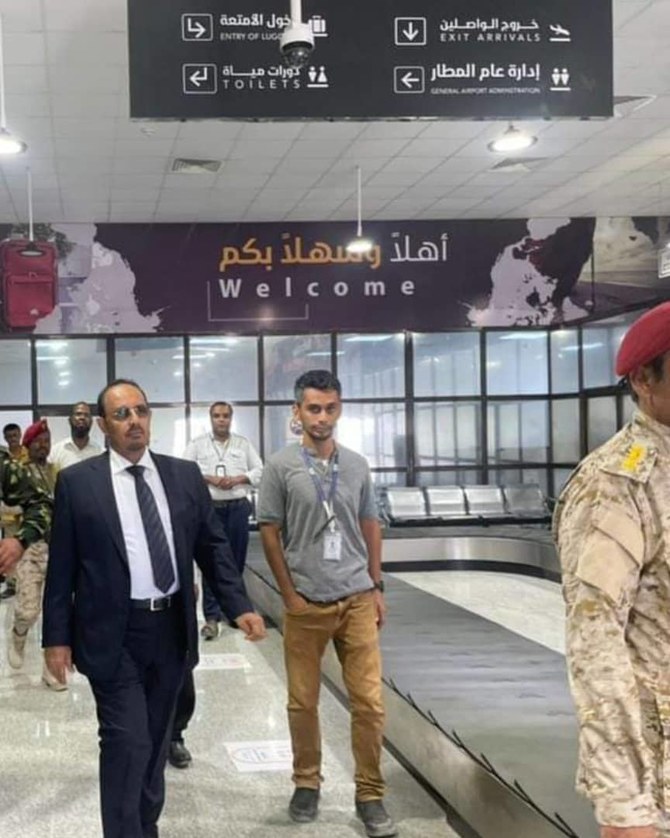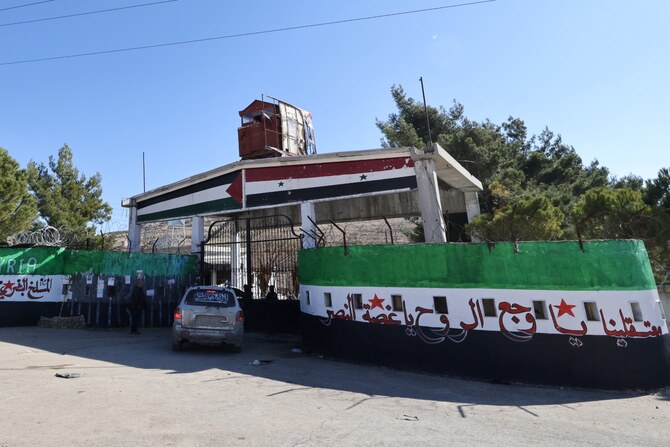AL-MUKALLA:Control of Riyan International Airport, in the port city of Al-Mukalla in southeastern Yemen, has been returned to local authorities by the Arab coalition that has been guarding it during the conflict in the country, Mabkhout bin Madhi, the governor of Hadramout province, has announced.
He said the coalition has handed over the airport to the provincial government, which has pledged to renovate it and establish new air routes.
The reopening of the airport will help to alleviate the humanitarian crisis in the country and make it easier for thousands of Yemenis to travel to other countries, the governor added.
“The airport terminals and civilian facilities were received in the context of joint coordination and within the framework of the brothers in the leadership of the Arab Coalition’s support for efforts to normalize life, following their support for maintaining security following the liberation of the Hadramout coast from Al-Qaeda elements,” said bin Madhi.
Yemen’s Prime Minister Maeen Abdul Malik Saeed directed the Ministry of Transportation to quickly implement the renovation plans so that the airport can return to operating at full capacity.
Arab coalition forces, primarily from the UAE, have controlled the airport since early 2016, when coalition-backed Yemeni forces drove Al-Qaeda out of Al-Mukalla, Hadramout’s capital, and nearby coastal areas.
In 2019, the UAE Red Crescent opened a new hall at the airport, paving the way for Yemenia Airways to plan weekly flights to Jeddah, Socotra and Aden. Bin Madhi said the local government will now renovate terminals, car parks and other facilities, so that he airport can establish new routes and offer flights to more destinations. Before the long-running war in the country, Yemenia flew from the airport to Kuwait, Cairo, Amman, Kuala Lumpur, Sanaa, and other Yemeni and international destinations.
Yemenis have long complained about the long distances they must travel to reach one of the two airports that remained operational in the country: Seiyun Airport in Hadramout and Aden International Airport.
Meanwhile, in Aden, the head of the Presidential Leadership Council, Rashad Al-Alimi, told Al-Arabiya TV on Wednesday that the Iran-backed Houthis should embrace the Saudi peace plan to end the conflict in Yemen and halt the fighting for good. He accused the Houthis of using temporary truces to regroup and replenish before resuming fighting.
He also commended Saudi Arabia on the assistance it has provided to Yemen in the health, transportation and other sectors.
“The Yemeni people need peace, health and services; the Yemeni people want life,” he added.
On Wednesday, Al-Alimi and the Saudi ambassador to Yemen, Mohammed Al-Jaber, officially launched a number of Saudi-funded development projects in Aden, including the renovations of Aden’s airport and a government-run hospital.




















